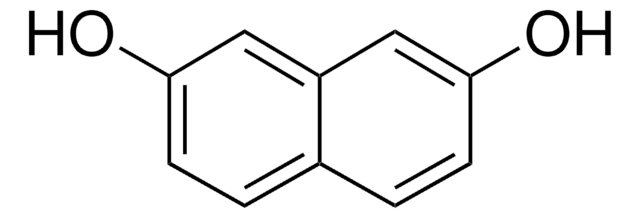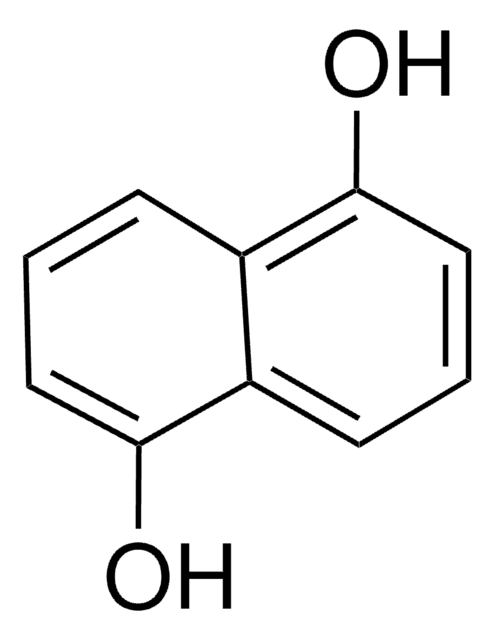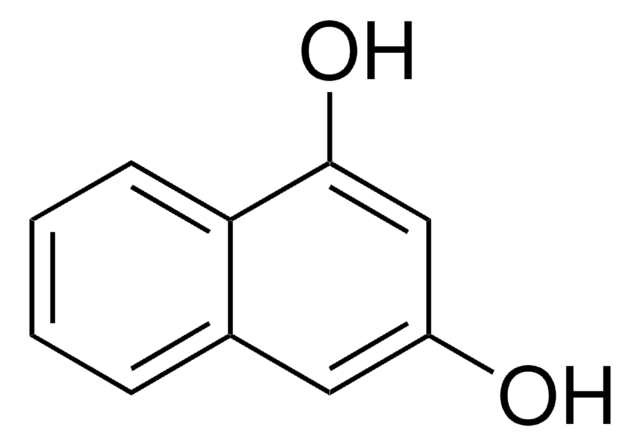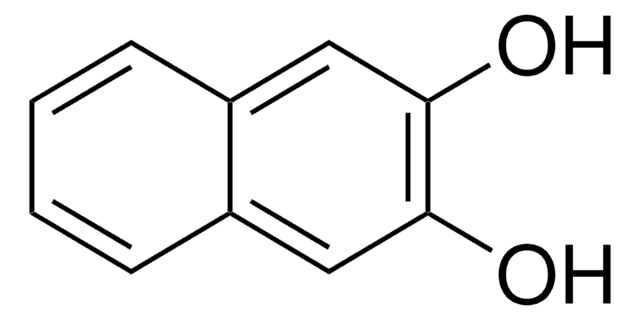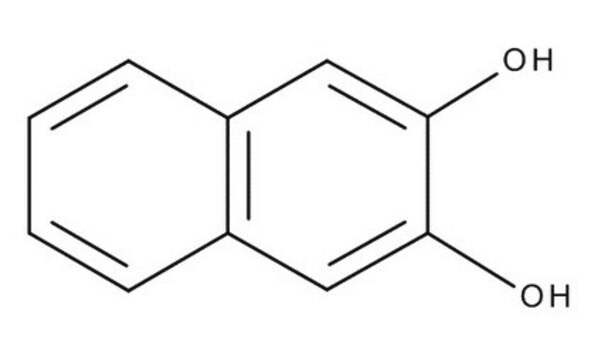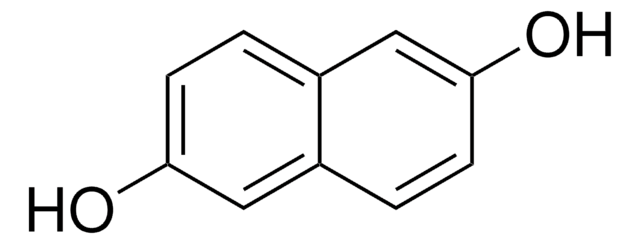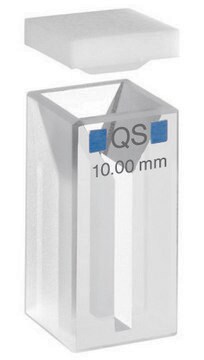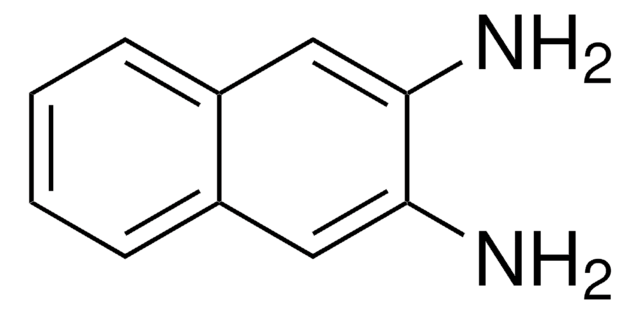8.20851
2,7-Naphthalenediol
for synthesis
Synonym(s):
2,7-Naphthalenediol, 2,7-Dihydroxynaphthalene
About This Item
Recommended Products
Quality Level
Assay
≥98.0% (HPLC)
form
powder
mp
184-187 °C
bulk density
600‑700 kg/m3
storage temp.
2-30°C
SMILES string
Oc1cc2c(cc1)ccc(c2)O
InChI
1S/C10H8O2/c11-9-3-1-7-2-4-10(12)6-8(7)5-9/h1-6,11-12H
InChI key
DFQICHCWIIJABH-UHFFFAOYSA-N
Application
- Photoelectric Properties of Carbon Quantum Dots: Investigates the synthesis and high fluorescent quantum yield of green carbon quantum dots, where 2,7-naphthalenediol serves as a precursor, enhancing the photoelectric properties for potential applications in optoelectronic devices (Zheng et al., 2020).
- Fungal Melanogenesis Mimicry for Coatings: Describes the use of dihydroxynaphthalene, derived from 2,7-naphthalenediol, in creating multifunctional coatings that mimic fungal melanogenesis, showcasing its application in protecting materials and increasing their durability (Jeon et al., 2016).
- Catalytic and SERS Activities of Nanoclusters: Discusses the role of 2,7-naphthalenediol in enhancing the catalytic and Surface-Enhanced Raman Scattering (SERS) activities of osmium nanoclusters, which are crucial for chemical sensing and catalytic applications (Ede et al., 2014).
- Shape-Selective Pt Nanoparticles: Details the photoinduced formation of shape-selective platinum nanoparticles, where 2,7-naphthalenediol could potentially act as a reducing agent, influencing the synthesis process in photoreactive nanomaterial production (Kundu and Liang, 2010).
- Glycolate Testing in Microbial Cells: Presents a new rapid glycolate testing method using diethyl ether extraction suitable for small bacterial cell samples. While primarily a methodological study, it highlights the broader potential applications of reagents like 2,7-naphthalenediol in biochemical testing (Uchida et al., 1999).
Analysis Note
Identity (IR): passes test
Signal Word
Warning
Hazard Statements
Precautionary Statements
Hazard Classifications
Eye Irrit. 2 - Skin Irrit. 2 - STOT SE 3
Target Organs
Respiratory system
Storage Class Code
11 - Combustible Solids
WGK
WGK 2
Flash Point(F)
Not applicable
Flash Point(C)
Not applicable
Certificates of Analysis (COA)
Search for Certificates of Analysis (COA) by entering the products Lot/Batch Number. Lot and Batch Numbers can be found on a product’s label following the words ‘Lot’ or ‘Batch’.
Already Own This Product?
Find documentation for the products that you have recently purchased in the Document Library.
Customers Also Viewed
Our team of scientists has experience in all areas of research including Life Science, Material Science, Chemical Synthesis, Chromatography, Analytical and many others.
Contact Technical Service